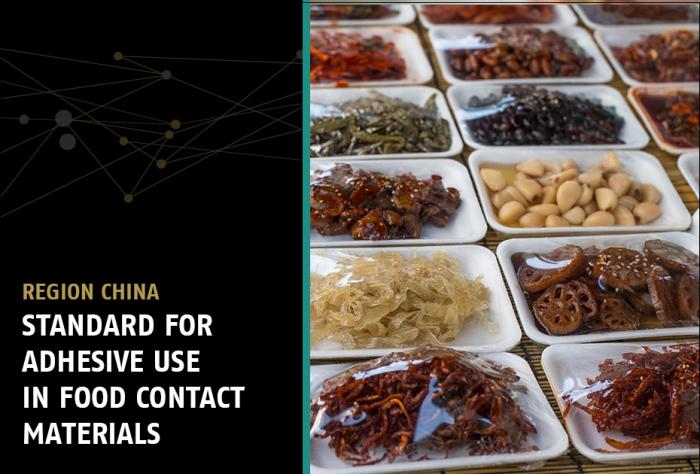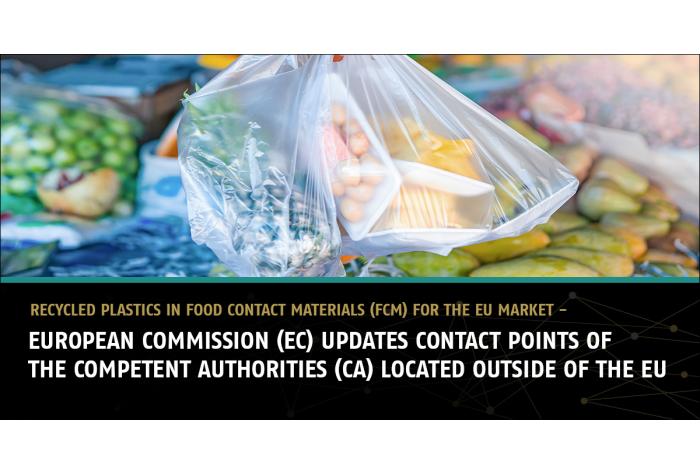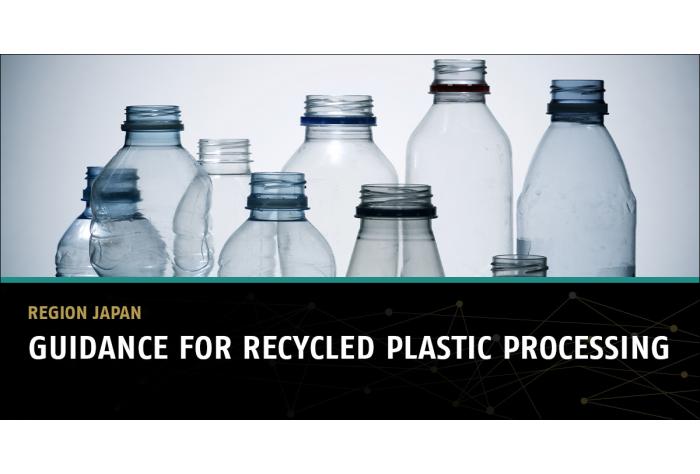consulting for Food Contact Materials
If manufacturing or sustaining food contact materials is your business, compliance to ever changing standards is at the heart of it. knoell's scientific experts make sure you never miss a beat.

Compliance and safe use of Food Contact Materials
A Food Contact Material (FCM) is any substance or material that comes into contact with food as part of packaging, holding, or processing, but is not intended to be added directly to, become a component, or have a technical effect in or on the food. Food contact materials are also referred to as indirect food additives and need to be authorised for use as per the appropriate country regulations (e.g. EU, United Kingdom, USA, Canada, MERCOSUR, China, Japan, Switzerland etc.).
These regulations exist so that manufacturers and producers of materials such as plastic, paper, paperboard, printing ink, ceramic, wood, metal, cork, textiles, adhesives are utilising materials that are safe for their intended food contact application. If a food contact material is not already regulated, one might need to apply for an authorisation in a given country in order to have this new food contact substance included in an existing positive list and thus cleared for use.
Our team of experienced experts will provide our clients with
Food Contact Materials - Regulatory Services
- Determine compliance status of raw materials used in final food packaging globally
- Author compliance reports to ensure safe use
- Author and submit required regulatory notifications to Government Authorities, (FDA, EFSA, CFSA, etc.)
- Supply Chain Management (ensure compliance along supply chain from raw material manufacturers to final article manufacturers)
Food Contact Materials - Toxicology Support
- Conduct risk assessments to determine safe use of FCMs
Food Contact Materials - Analytical Testing
- Work closely with partner laboratories to conduct required testing for compliance and notifications such as:
- US 21 CFR testing, EU OML/SML testing, GB 9685 testing, etc.
- Migration Testing
Also have a look at our complete range of FCM solutions!
Supporting the industry
You have a concern regarding food contact materials or need a second opinion?
We'd love to support you – Get in touch!
Food Contact Compliance around the world
Food contact compliance in the United States is governed by the US Food and Drug Administration (FDA). The US FDA regulates both direct food additives, such as food colors and flavors, and “indirect” food additives that could be introduced into food via migration from food contact substances. US regulations governing food packaging are divided into material specific sections, including polymers, colorants, adhesives, paper and paperboard, and more.
- If a food contact substance is not listed in the regulations or does not fall into an applicable exemption, there is a path to clearance using a Food Contact Notification (FCN) for a specific unregulated substance.
- The FCN program was established in 2000 and over 1500 FCNs have been filed since its inception. The US FDA reviews an FCN application containing physical-chemical information on the food contact substance, its manufacturing process, the intended end use of the material, migration data, exposure calculations, and toxicological risk assessments for the food contact substance and its migrants.
- The effective FCN is proprietary to the applicant and whomever purchases the food contact substance from the applicant.
- While initially FCNs would only be revoked if the US FDA determined there was new information presenting a safety concern, a new rule proposed in 2022 would add additional reasons as a basis for the US FDA to determine that a FCN is no longer effective, and also provides notifiers an opportunity to give input into the FCN inactivation process.
- FCS suppliers operating in the US should also be aware of state specific regulations that go above US Federal requirements, such as California’s Safe Drinking Water & Toxic Enforcement Act (Proposition 65), which mandates consumer warning prior to exposure to a list of 900+ chemicals such as Bisphenol A.
What's important in the US market
EU Food Contact Materials Regulations
Food contact materials and articles in the EU are governed by the Framework Regulation (EC) No 1935/2004, which provides a general safety provision for all FCMs, labeling, traceability, and Declaration of Compliance requirements, and authorization of new substances. There are also material specific lists that are harmonized and in force to all countries in the EU.
There are currently only four harmonized FCM types:
- Plastics Reg. (EU) No 10/2011
- Active and Intelligent Materials Reg. (EC) No 450/2009
- Ceramics Directive 84/500/EEC
- Regenerated Cellulose Film Directive 2007/42/EC
And one regulation on recycled plastics:
- Commission Regulation (EU) 2022/1616 on recycled plastic materials and articles intended to come into contact with foods
There are additional substance specific requirements, including a limit for Bisphenol A (BPA) in varnishes and coatings, Reg. (EU) No 2018/213.
As many materials do not have yet EU harmonized measures in place, some EU countries have their own country specific laws on such ‘non-harmonized’ materials.
Germany is in the process of passing legislation restricting mineral oils in food contact recycled paper and paperboard. There are material specific guidelines published by technical groups, such as Germany’s Federal Institute for Risk Assessment/Bundesinstitut für Risikobewertung (BfR) Recommendations on paper and printing inks, which are not legally binding, but widely used by food contact manufacturers.
EU countries can also push for focused legislation around chemicals of concern such as a recent proposed restriction on per- and polyfluoroalkyl substances (PFASs), supported by five EU member states that could go into effect in 2025.
Safety Assessment of NIAS in Food Contact Materials
Reg (EC)No 1935/2004 states Food Contact Materials shall not transfer their constituents to food in quantities that:
- Endanger human health or
- Bring an unacceptable change in composition of food or
- Bring a deterioration of organoleptic characteristics of food, under normal and foreseeable conditions.
Both IAS (Intentionally Added Substances) and NIAS (Non-Intentionally Added Substances) could transfer into food under normal and foreseeable conditions if they are present in the FCM or food contact article and thus, both IAS and NIAS need to be addressed with respect to Art 3 compliance.
Non-Intentionally Added Substances (NIAS) are those substances non-intentionally used / formed in the manufacturing of FCM or food contact articles e.g., impurities present in the (intentionally used) substances, reaction intermediates formed during the production process of a FCM or article, and decomposition products reaction products.
Based on Art 3 of Regulation (EC) No 1935/2004 & Art 19 of Regulation (EU) No 10/2011, NIAS need to be risk assessed. A Risk Assessment entails the comparison of the safe level of the NIAS (ADI = Acceptable Daily Intake) to the exposure level in humans (Estimated Daily Intake) by a toxicologist. The ADI must be greater than the EDI in order the NIAS substance to be considered safe.
What's important in the European market
China Food Contact Materials Regulations
Materials and articles intended to come into directly or indirectly contact with food are required to have a Declaration of Compliance (DoC) for Food Contact Materials (e.g., packaging materials, containers, food processing tools or parts of these, printing inks, adhesives, lubricating oils, etc.) before being placed on the Chinese market.
According to Food Safety Law of the People’s Republic of China and the related national standards (GBs), the DoC should clearly state that the Chinese regulatory compliance requirements on FCM are met. The following information should be included in the DoC:
- Product information including the type of Food Contact Material
- Conditions of use
- Company name and address
- List of the restricted substances and their limitations
- The conformity with the Food Safety Law and corresponding GBs
The most important section is the conformity with the Food Safety Law and GBs. In this section, the company should indicate the compliance of raw materials and additives, together with the information on the substances with specific migration limits (SMLs) or a maximum allowed quantity (QM) present in the final FCM. In order to obtain this information, the migration testing should be conducted considering the intended use and function of the FCM type, taking into account the indications given in the existing GBs.
However, for substances not listed in the existing positive lists of GBs (and in case of an extension of the use), an approval on the new food contact substance (FCS) issued by the National Health Commission of the People's Republic of China (NHC), is required.
What's important about the DoC?
What's important in China?
Japan Food Contact Materials Regulations
Food contact compliance in Japan has undergone a major overhaul in the recent years. While in the past trade associations established voluntary Positive and Negative Lists for Food Contact Materials (FCMs), Japan amended the Food Sanitation Act in 2018 and 2020 and established specifications and standards for food contact materials. Under these revisions, a mandatory Positive List (PL) system was established for synthetic resin FCM, with the intent to implement additional PLs for food contact metal, paper, and printing inks, etc. in the future.
- The PL structure for synthetic resins consists of separate tables for polymers and additives.
- Information sharing along the supply chain is mandatory, such as a Declaration of Compliance confirming compliance with the relevant regulation and conveying any limitations on the FCM.
- For FCMs that are not compliant with the PL but have been on the market in Japan prior to 1st June 2020, there is a 5-year grace period to continue manufacturing and marketing these products in Japan until 31st May 2025.
- Manufacturers producing FCM with substances that are not currently on the PL may submit authorization dossiers including technical and safety information to the Ministry of Health, Labour and Welfare (MHLW) of Japan in order to seek their inclusion on the PL.
Japan has revised the PL several times since it was established, with a revised Risk Assessment policy upcoming and potentially an easier path to allow the inclusion of currently unlisted FCM substances on the Japanese PL that are already cleared in other jurisdictions such as the US and EU for the same purposes.
What's important in Japan
In addition to regulations requiring that food contact materials and final articles are made from individual substances approved for food contact, many countries require that Food Contact Materials are produced according to Good Manufacturing Practices (GMP). GMP requirements are designed to prevent contamination and ensure that food contact materials and articles are safe to contact food.
In the EU, food contact materials and articles must be compliant with Regulation (EC) No 1935/2004.
- This regulation requires that both food contact materials and articles are manufactured in accordance with Regulation (EC) No 2023/2006, which further specifies the required GMP conditions for food contact materials and articles intended for the EU market.
- EU regulations also require the implementation of a quality control system establishing measures to ensure compliance of FCM with specifications
Key requirements for GMPs for FCM include:
- Sanitation of facilities
- Hygiene and training of personnel in the manufacturing facility
- Documentation and traceability
- Production and raw material specifications
- Ensuring any subcontractors meet GMP requirements
- Product recalls
- Regular internal and supplier audits
Consumer and retailer concerns have increased in recent years with respect to the environmental impacts and pollution originating from packaging. There is an increasing demand for products made from post-consumer recycled material. However, each jurisdiction has their own rules for reviewing and authorizing post-consumer recycled materials for food contact.
- The US FDA requires that the manufacturer of post-consumer recycling material submit a dossier for their recycling process that is used to manufacture food contact materials. The purpose of this submission is for the FDA to assess if the recycled materials meet the same regulatory requirements as virgin materials.
- Similar to an FCN, an applicant provides data on the FCS recycling process and its ability to remove contaminants, information on the source of the recycled plastics, and the intended end use of the FCS. The US FDA will issue a No Objection Letter (NOL) if the review determines that the process will produce acceptable (‘compliant’) post-consumer recycled materials.
- Requests for NOLs for recycling processes have increased rapidly in the recent years, due to rising demand to include recycled plastic or recycled paper in food packaging.
- Recycled plastic materials and articles are only allowed to be placed on the market in the EU if they contain recycled plastic obtained from an authorized recycling process.
- Before a recycling process is authorized for food contact applications, the European Food Safety Authority (EFSA) is required to issue an Opinion on its safety. Upon a favorable Opinion from EFSA, the European Commission (EC) will issue an authorization on the recycling process. Similar to the US process, the review requires an assessment of the feedstock of the recycled material and “challenge” testing to indicate that the recycling process will effectively remove likely contaminants.
Latest News on Food Contact Materials
gathered by knoell experts
Whatever it takes
Delve into the Full range of Compliance solutions by knoell experts
Review of Food Contact Material (FCM) and Article formulations against global regulations
- Check of compliance status of individual components against existing positive listings and regulations
- Preparation of Declaration of Compliance (DoC), based on the analysis and evaluation of targeted formulations
- Preparation of compliance documents with respect to Good Manufacturing Practice (GMP) requirements related to the manufacturing of FCM
- Keeping abreast of the developments concerning global regulations to allow clients to understand the current regulatory environment
- Read more about our strategic and regulatory consulting solutions.
Submission of Food Contact Notifications and Food Contact Petitions to Competent Authorities for a Food Contact Substance (FCS)
- Preparation of a Data Gap Analysis in accordance with specific country regulations
- Development of the overall regulatory strategy of the submission
- Worst Case Migration Calculations
- Migration Testing, see Analytical Testing
- Preparation and Submission of Food Contact Notifications and Food Contact Petitions for the authorization of a food contact substance in the USA, EU (for both EU harmonized and non-harmonized FCM), United Kingdom, Canada, MERCOSUR (= Mercado Comin del Sur), China, Japan, Switzerland.
- Communication with authorities via Pre-Notification Consultation
Supply Chain Support & Management of entire portfolio of products
Quality Management & Audits
Good Manufacturing Practice (GMP) audits at the food contact materials’ and food contact articles’ manufacturing facility can be conducted to prepare the client for inspection. Further details are outlined here.
Workshops & Seminars
Benefit from our up-to-date expert training modules, seminars and workshops held on scheduled dates at our training premises, online or at a location of your choice and individually designed for you. Explore our knoell academy programme!
- Literature searches and evaluations
- Dietary exposure assessments
- Risk Assessments of FCS, and NIAS (where applicable) and present in FCM
- Preparation of toxicological testing protocols, and corresponding reports
- Preparation of OECD study summaries
- Author Safety Narratives and Comprehensive Toxicology Profiles to support submissions of Food Contact Notifications and Petitions to Competent Authorities
- Read more about technical and scientific support.
Impurity profiling,
- including identification and quantification of Non-Intentionally Added Substances (NIAS)
Identification and quantification of residual Intentionally Added Substances (IAS)
- present in the final FCM or those substances migrating into food/food simulant from the FCM
Preparation and review of migration testing protocols
- and testing reports for all jurisdictions including US, EU-harmonized FCM (i.e. plastics FCM), EU non-harmonized FCM (i.e. paper, board, printing inks, etc.), China, Japan, as well as other geographical areas
Study Management & Monitoring
- Study management and monitoring to ensure the right laboratory or CRO (Contract Research Organization) is chosen for the required study
- Guidance on conducting a study in a way so that it can be used for regulatory submissions in more than one country or region, if your business is international.
If you need customised study monitoring for your migration or toxicological testing or support with planning and monitoring of your residue trials, find out why knoell might be the right choice for you.
Supporting the industry
Do you need to contact a regulatory expert in order to comply with the latest food contact regulations?
We're here to assist you – Get in touch!
Contact Americas
Angelique Downey
Head of Division, Food & Food Contact Materials
Contact Asia
Liu Hui
Regulatory Affairs Specialist, Food Contact Materials
Contact Europe
Dr. Ioan Paraschiv
Group Leader, Food and Food Contact Materials
Current events on Food contact material
meet our experts





